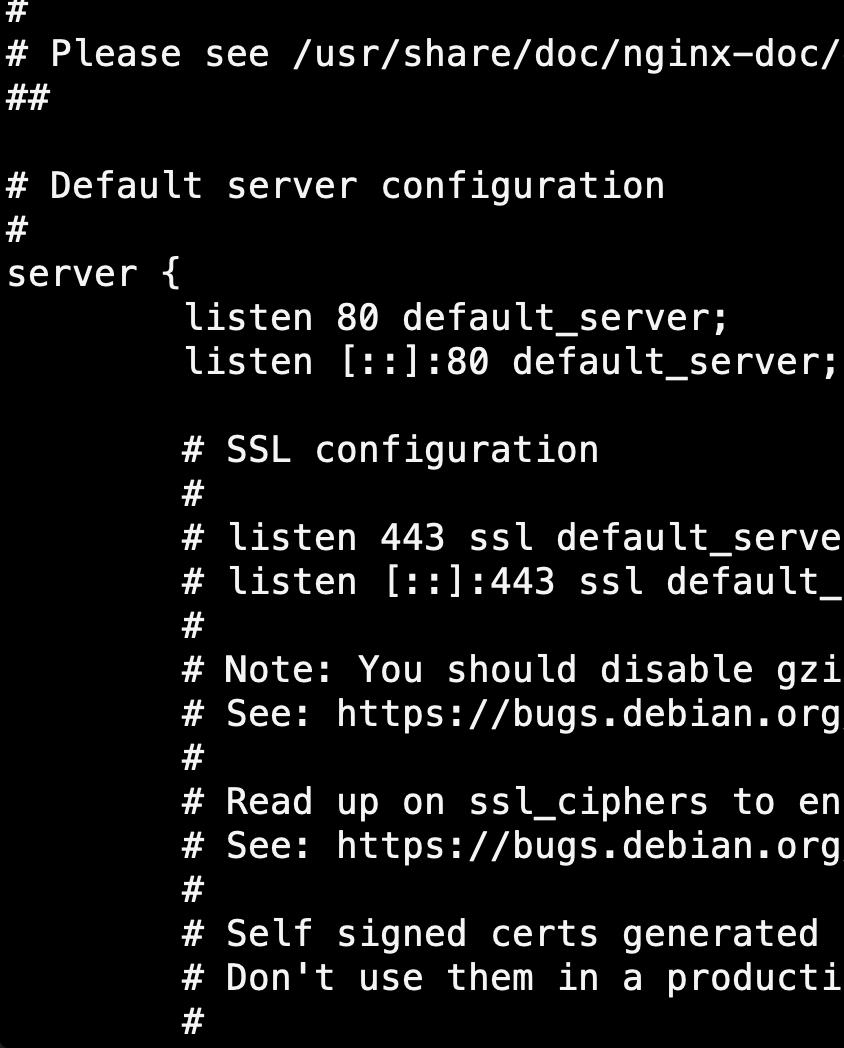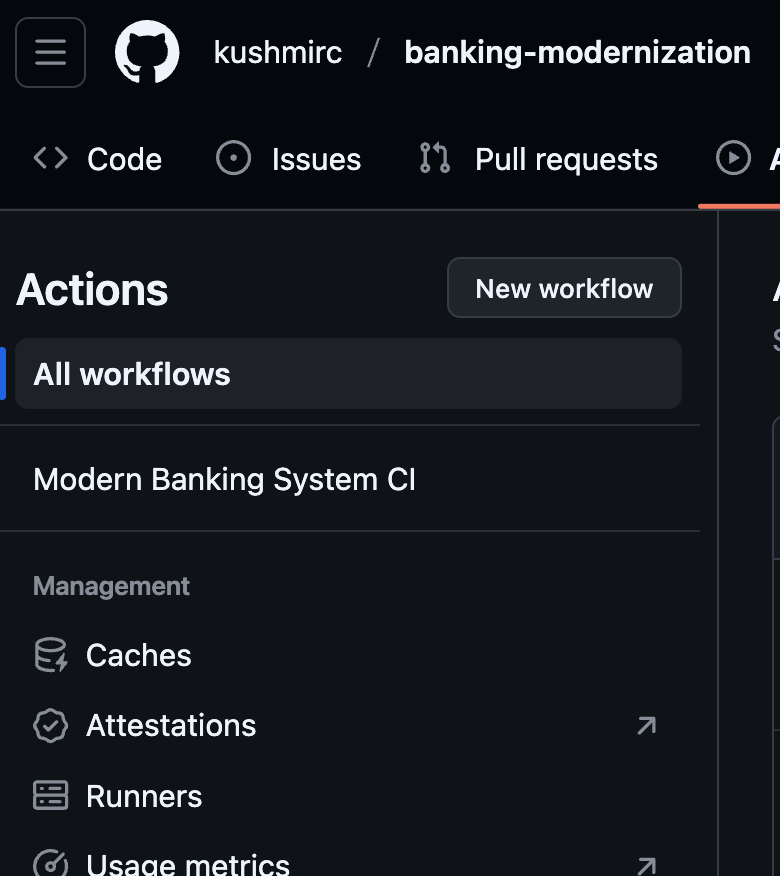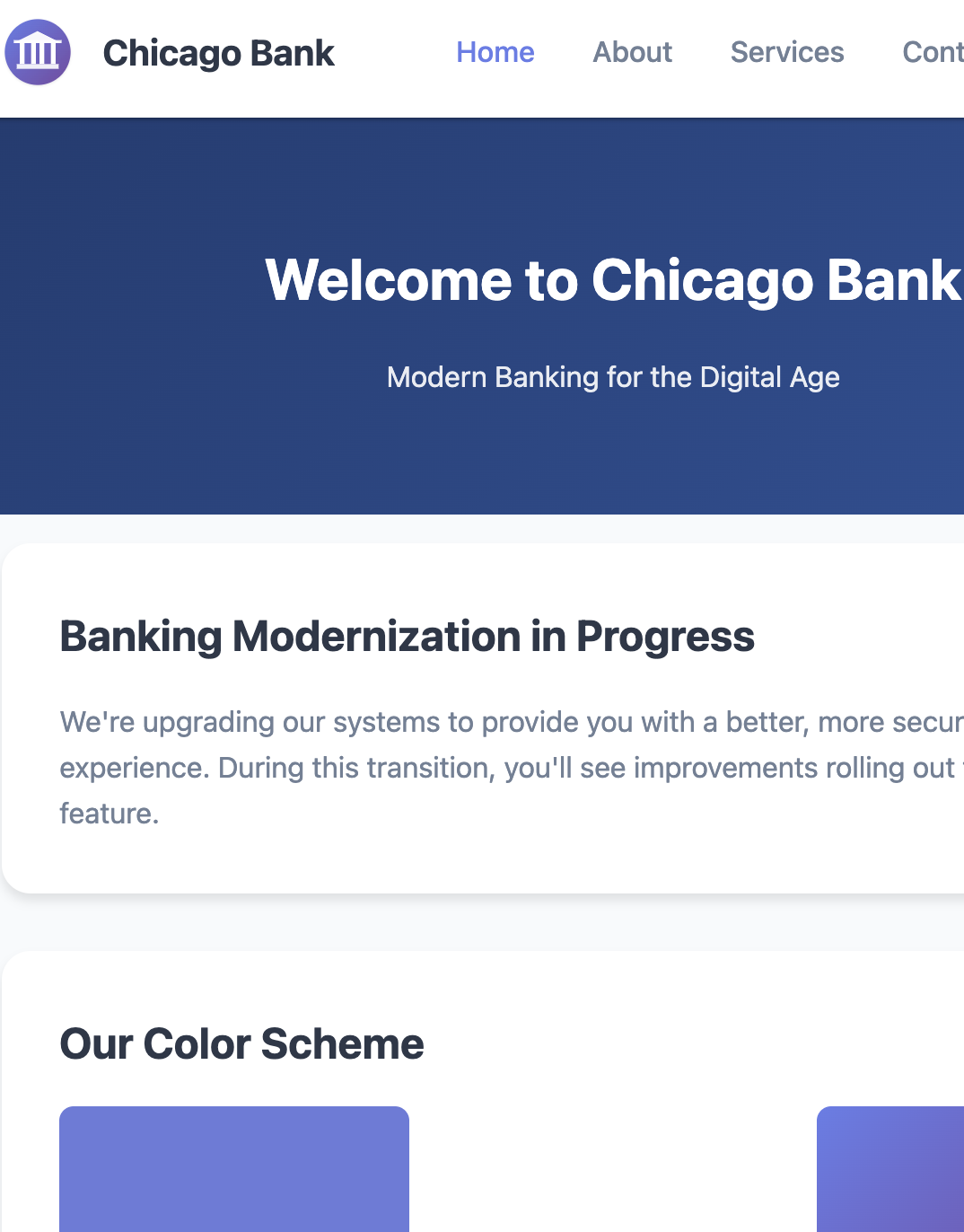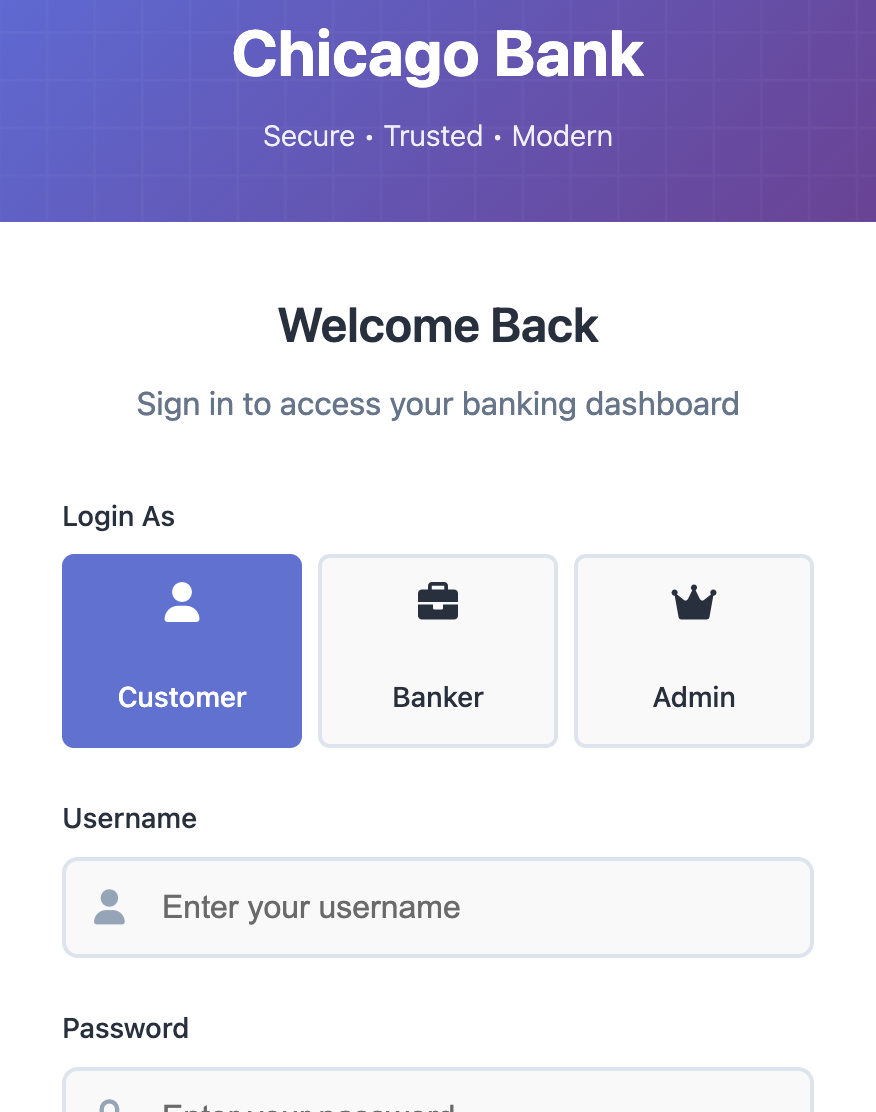Banking Modernization
Java JSP servlet application migrated to modern Spring Boot
Scenario:
The Challenge:
A legacy banking application built on JSP and Java servlets posed significant security risks and operational challenges. The code and complex manual deployment process threatened business continuity and regulatory compliance.
The Solution:
Rather than pursuing a high-risk “big bang” rewrite approach, I implemented an incremental modernization strategy, migrating features one-by-one from JSP and servlets to Spring Boot and Thymeleaf while maintaining operational continuity.

Legacy System:
– Deployed and analyzed complete legacy system.
– AWS EC2 with Tomcat and MySQL
– AWS Linux dependency resolution

AWS EC2 & Nginx:
– Incremental Migration Architechture on AWS Linux
– Nginx reverse proxy routing between legacy and modern pages
– Safe, gradual rollouts

CI/CD:
– Continuous Integration – Github Actions
– Continuous Delivery – Jenkins
– Custom deployment scripts

Modern System:
– Spring Boot 3 modernization
– MySQL to PostgreSQL migration
– Spring MVC with Thymeleaf

Enhanced Security:
– Legacy: Vulnerable Servlet based authentication
– Modern: Spring Security with JWT tokens
– Maintain existing user base
Dig into the details at the Github page.
Full Summary:
This project demonstrates enterprise-level legacy system modernization using the Strangler Fig pattern to incrementally migrate a banking application from JSP/Servlets to Spring Boot 3.x. Rather than a risky “big bang” rewrite, this approach maintains business continuity while delivering continuous value through feature-by-feature migration.
- Zero business downtime during modernization process
- Immediate security improvements addressing legacy servlet vulnerabilities and security gaps
- Risk mitigation through feature flags and rollback capabilities
- Continuous value delivery rather than waiting months/years for completion
┌─────────────────────────────────────────────────────────────┐
│ AWS EC2 Instance │
├─────────────────────────────────────────────────────────────┤
│ ┌─────────────────┐ ┌─────────────────────────────────┐ │
│ │ Nginx Proxy │ │ Migration Controller │ │
│ │ │ │ (Feature Flag Routing) │ │
│ └─────────┬───────┘ └─────────────┬───────────────────┘ │
│ │ │ │
│ ┌─────────▼───────┐ ┌─────────────▼───────────────────┐ │
│ │ Legacy System │ │ Modern System │ │
│ │ JSP/Servlets │ │ Spring Boot 3.x │ │
│ │ Tomcat 10 │ │ Embedded Tomcat │ │
│ └─────────────────┘ └─────────────────────────────────┘ │
├─────────────────────────────────────────────────────────────┤
│ Database Layer │
│ ┌─────────────────┐ ┌─────────────────┐ │
│ │ MySQL │ ────► │ PostgreSQL │ │
│ │ (Legacy Data) │ │ (Modern Schema) │ │
│ └─────────────────┘ └─────────────────┘ │
└─────────────────────────────────────────────────────────────┘
- Deployed legacy JSP/Servlets application to production environment
- Operational analysis through real-world usage and monitoring
- Business logic documentation through black-box and code analysis
- Infrastructure challenges identified and resolved
- MySQL to PostgreSQL migration with zero-downtime strategy
- Schema modernization while maintaining data compatibility
- Dual-write validation to ensure data consistency
- Performance optimization for banking transaction loads
- Jenkins pipeline integration for automated testing and deployment
- Feature flag infrastructure for gradual traffic migration
- Rollback automation for risk mitigation
- Monitoring and alerting for migration health
- Authentication system (Spring Security + JWT)
- Account management (Balance inquiry, transaction history)
- Fund transfers (Internal and external bank transfers)
- Complaint system (Customer service and resolution tracking)
- Framework: Traditional JSP/Servlets with manual MVC implementation
- Application Server: Apache Tomcat 9
- Database: MySQL 5.7 with banking transaction schema
- Architecture: Servlet-based request handling with JSP views and manual routing
- Framework: Spring Boot 3.x with Spring Security
- Database: PostgreSQL 15 with optimized schema design
- API Design: RESTful services with comprehensive validation
- Security: JWT authentication, SQL injection prevention, input sanitization
- Testing: Comprehensive unit, integration, and migration verification tests
Backend:
- Java 17 (LTS)
- Spring Boot 3.x
- Spring Security 6
- Spring Data JPA
- PostgreSQL 15
- MongoDB (complaints system)
Frontend:
- Thymeleaf templates
- Modern responsive CSS
- Vanilla JavaScript
- Bootstrap 5
Infrastructure:
- AWS EC2
- Nginx (reverse proxy)
- Jenkins (CI/CD)
- Docker (containerization)
- Feature flags (gradual migration)